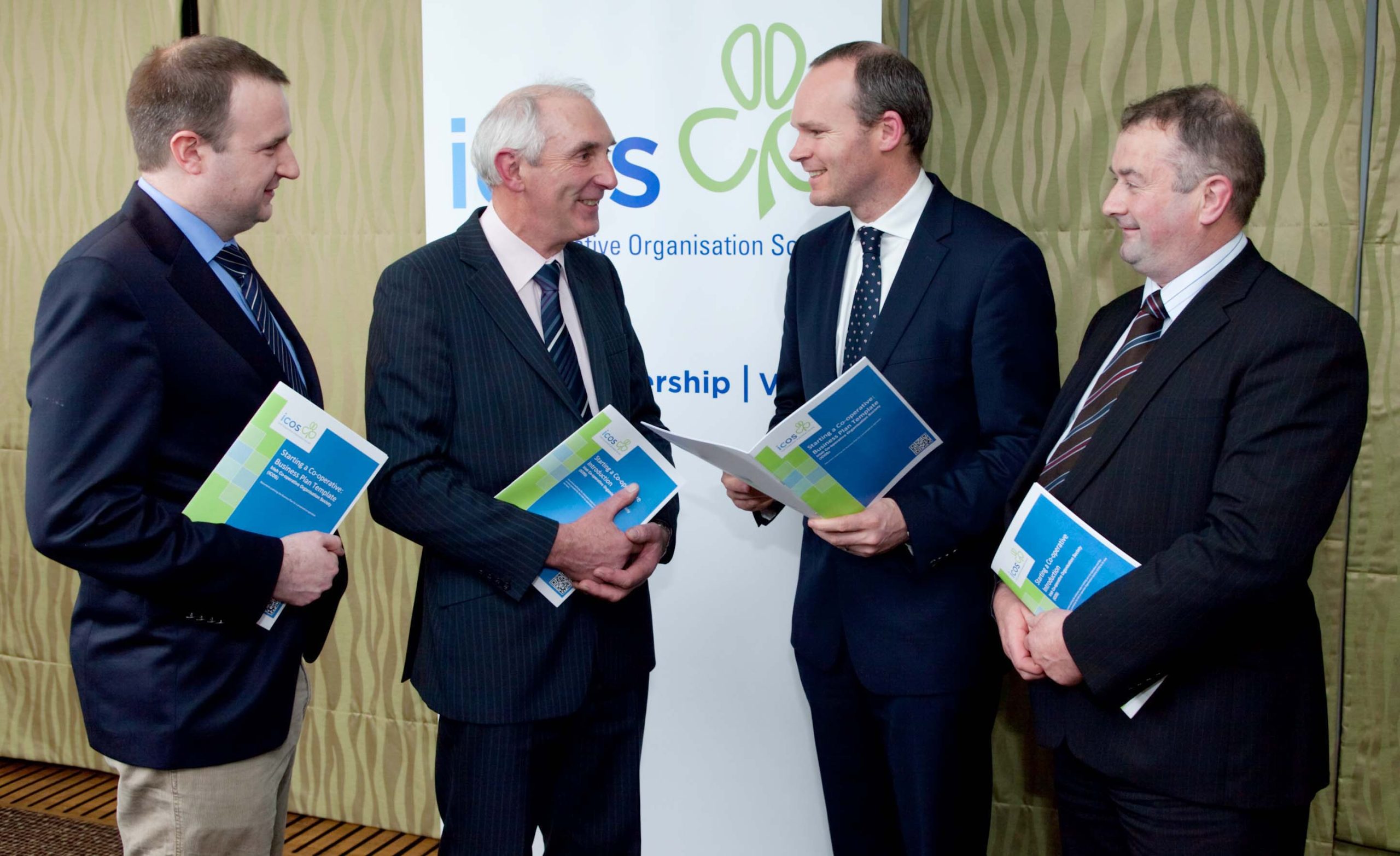Minister Coveney launches Co-operative start-up Guide

ICOS encourages new co-operative enterprises
ICOS – the Irish Co-operative Organisation Society has introduced an introductory guide and business planning template to encourage groups to establish new co-operative enterprises throughout Ireland. The guide was launched by the Agriculture, Marine and Food Minister, Simon Coveney, T.D., marking the start of the UN International Year of Co-operatives 2012 which is also being promoted inIreland by ICOS.
The Minister launched the co-operative start-up guide as he visited dairy processing co-operative directors attending an ICOS Co-operative Leadership training course in Charleville, Co. Cork.
A co-operative is an enterprise owned and controlled by its user members and which operates for their collective benefit. New co-operatives can be established by innovators in any industry or business sector. There are hundreds of successful co-operative organisations in Irelandmost notably in the dairy, food and agribusiness industries. ICOS represents co-operatives whose associated businesses have a combined turnover in the region of €12 billion, with some 150,000 individual members, employing 12,000 people in Ireland and a further 24,000 overseas.
Minister Coveney said: “Co-operatives have contributed immensely to economic growth and societal wellbeing in Ireland since the first co-operative organisation was founded in 1894. In this United Nations International Year of Co-operatives, the establishment of new indigenous co-operative businesses has an important role to play in the renewal and recovery of our economy for the future. I am delighted that ICOS is promoting this agenda and I congratulate their co-operative members as they mark this special year together with all other co-operatives worldwide.”
Pat McLoughlin, President of ICOS said: “The business of co-operation centres around economic viability, democratic participation in a collectively owned organisation and the practice of social responsibility throughout the community. It also requires innovation, competitiveness, operational excellence and the provision of the highest possible quality of products and services in meeting market demands at home and abroad. Using these criteria, new and existing Irish co-operatives can continue to grow and prosper as they have done for well over a century to date.”
A minimum of seven people are required to incorporate a co-operative society under the Industrial and Provident Societies Acts administered by the Registrar of Friendly Societies. Groups should have a clearly defined economic purpose in mind along with a comprehensive business plan for the co-operative enterprise. The plan must identify how the co-operative will be commercially viable as well as the financial commitment that will be required of members. Once these criteria are fulfilled groups can then approach ICOS to assess the suitability of the proposed enterprise as a co-operative.
United Nations International Year of Co-operatives 2012
Co-operatives are business enterprises owned and controlled by the members that they serve. Their member-driven nature is one of the most clearly differentiating factors of co-operative enterprises. This means that decisions made in co-operatives are balanced by the pursuit of profit, and the needs and interests of members and their communities. Co-operatives take many forms and operate in all sectors of society. Most share a unique set of principles which keep them attuned with their member-driven ethos.
International years are declared by the United Nations to draw attention to and encourage action on major issues. The International Year of Co-operatives is intended to raise public awareness of the invaluable contributions of cooperative enterprises to poverty reduction, employment generation and social integration. The Year will also highlight the strengths of the co-operative business model as an alternative means of doing business and furthering socioeconomic development.